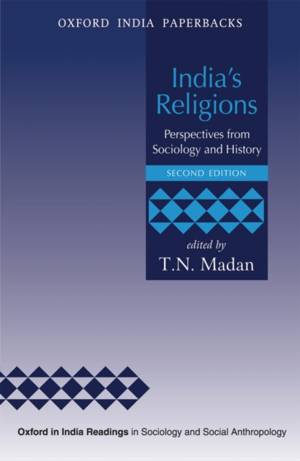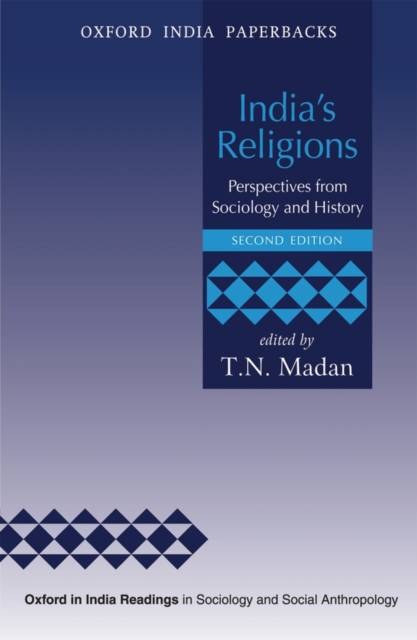
Bedankt voor het vertrouwen het afgelopen jaar! Om jou te bedanken bieden we GRATIS verzending (in België) aan op alles gedurende de hele maand januari.
- Afhalen na 1 uur in een winkel met voorraad
- In januari gratis thuislevering in België
- Ruim aanbod met 7 miljoen producten
Bedankt voor het vertrouwen het afgelopen jaar! Om jou te bedanken bieden we GRATIS verzending (in België) aan op alles gedurende de hele maand januari.
- Afhalen na 1 uur in een winkel met voorraad
- In januari gratis thuislevering in België
- Ruim aanbod met 7 miljoen producten
Zoeken
India's Religions
Perspectives from Sociology and History
€ 25,45
+ 50 punten
Omschrijving
Religion occupies an important place in both the private and public domains in India. This volume is a collection of essays on India's major religions as practised in everyday life. It approaches religion from the perspectives of ethnography and history. It takes stock of traditions, culture, history, and politics of India's faiths. The readings explore sacred places and performances, bonding, mediators and thinkers, charisma, spiritual power and innovation, which are significant components of cultural traditions as well. Beginning with the concept of the sacred defined by its otherness, the book proceeds to explore how the hiatus that otherness creates may overcome by bonding via piety and passion. The process of overcoming separation, or bonding, is universally facilitated by mediators of one kind or another, such as magicians, spiritual masters, or martyrs. Traditions are constructed, preserved, and transmitted in a number of ways that include the oral narrative and the literary text. This does not mean, however, that religious traditions are static. They, in fact, grow gradually and sometimes change radically. The dominant themes dealt with here include those of death, food, worship and devotion, spiritual masters, martyrs, and dharma. The second edition includes a new Appendix with a comparative regional perspective, and a new Preface.
Specificaties
Betrokkenen
- Uitgeverij:
Inhoud
- Aantal bladzijden:
- 444
- Taal:
- Engels
- Reeks:
Eigenschappen
- Productcode (EAN):
- 9780198074908
- Verschijningsdatum:
- 1/10/2011
- Uitvoering:
- Paperback
- Formaat:
- Trade paperback (VS)
- Afmetingen:
- 137 mm x 211 mm
- Gewicht:
- 458 g

Alleen bij Standaard Boekhandel
+ 50 punten op je klantenkaart van Standaard Boekhandel
Beoordelingen
We publiceren alleen reviews die voldoen aan de voorwaarden voor reviews. Bekijk onze voorwaarden voor reviews.








